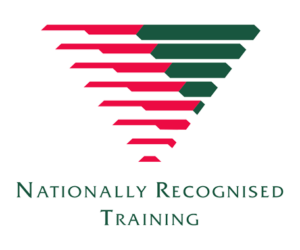 HLTAID012 First Aid Training in Victoria
HLTAID012 First Aid Training in Victoria
Provide an Emergency First Aid Response in an Education & Care Setting
Overview
This unit of competency describes the skills and knowledge required to provide a first aid response to infants, children and adults.
The unit applies to educators and support staff working within an education and care setting who are required to respond to a first aid emergency, including asthmatic and anaphylactic emergencies. Hltaid012 First Aid course in Victoria.
Duration
2 days in the classroom OR 1 day practical in the classroom with prior online learning
Pre-requisites
There are no pre-requisites.
Outcomes
Participants will receive a nationally recognized declaration of achievement in HLTAID012 Provide an emergency First Aid Response in an Education and care setting, valid for three (3) years from the date of completion, upon successful completion of the course. The Code of Practice and the Australian Resuscitation council proposes annual refreshment of cardiopulmonary resuscitation skills.
Entry Requirements
Students must be physically able to resuscitate by kneeling on the floor beside the casualty and performing two (2) minutes of continuous uninterrupted CPR on an adult and infant manikin placed on the floor.
Students under 18 years of age must submit a signed parental consent form before attending the course.
Learner Support and Reasonable Adjustment
Please contact us prior to enrolment if you have learning difficulties or any special needs or support requirements. This may include but not limited to language, literacy and numeracy skills or disabilities. It is important to note that there is a physical requirement to perform 2 minutes of uninterrupted CPR on the manikins placed on the floor in order for the successful completion of the course.
Recognition of Prior Learning
Recognition of prior learning is accessible to those who can provide additional evidence that they can demonstrate the knowledge, skills, and experience outlined by the unit. There is a requirement for currency in order to demonstrate skills like CPR.
Unique Student Identifier (USI)
When studying a nationally recognized training course in Australia, each student needs a Unique Student Identifier (USI) to acquire a certificate or qualification from their registered training organization.
A USI provides you with access to an online account that keeps all of your training record together, even if you switch places, alter training organizations or study at different times.
ASSESSMENT – THEORY – Multiple choice question paper
You will be assessed on:
State/Territory regulations, first aid codes of practice and workplace procedures:
- ARC Guidelines relevant to the provision of CPR
- Guidelines from Australian national peak clinical bodies
- Safe work practices to minimize risks and potential hazards
- First aid requirements for services under the Education and Care Services National Law
- Infection control principles and procedures, including use of standard precautions
- Requirements for currency of skill and knowledge
Legal, workplace and community considerations:
- Awareness of potential need for stress-management techniques and available support following an emergency situation , including the psychological impact on children.
- Duty of care requirements
- Respectful behavior towards a casualty
- Own skill, limitations
- Consent, including situations in which parental/caregiver consent is required
- Privacy and confidentiality requirements
- Importance of debriefing
Considerations when providing CPR:
- Airway obstruction due to body position
- Appropriate duration and cessation of CPR
- Appropriate use of an AED, including placement of pads for adults and children aged older than 8 years old
- Specific considerations when using an AED on children aged between 1 and 8 years, including identification of AED with pediatric capability, pediatric voltage and use of pediatric pads
- Chain of survival
- Standard precautions
- How to conduct a visual and verbal assessment of the casualty
Principles and procedures for first aid management of the following scenarios:
- Abdominal injuries
- Allergic reaction
- Anaphylaxis, including signs, symptoms and triggers and using different types of adrenaline auto injectors
- Basic care of the wound
- Bleeding control
- Burns
- Cardiac conditions, including chest pain
- Choking and airway obstruction
- Crush injuries
- Diabetes
- Dislocations
- Drowning
- Envenomation
- Environment impact, including hypothermia, hyperthermia, dehydrations and heat stroke
- Eye and ear injuries
- Fractures
- Febrile convulsions
- Head, neck and spinal injuries
- Minor skin injuries
- Needle stick injuries
- Poisoning and toxic substances
- Respiratory distress
- Seizures, including epilepsy
- Shock
- Soft tissue injuries, including strains and sprains
- Stroke
- Unconsciousness
Basic anatomy and physiology:
-
- How to recognise a person is not breathing
- Chest
- Infant respiratory systems and implications for provision of CPR
Basic anatomical differences between adults and children, and the implications for provision of first aid
- Basic anatomical differences between adults and children, and the implications for provision of first aid
- Normal clinical values for children
- Response/consciousness
- Upper airway and effect of positional change
ASSESSMENT – PRACTICAL – Physical demonstrations (skills)
The Simulated assessment environment will simulate the real-life working environment where these skills and knowledge would be performed, with all the relevant equipment and resources of that working environment. Skills must be demonstrated working individually in an environment that provides realistic in-depth, industry-validated scenarios and simulations to assess candidates’ skills and knowledge.
You will be assessed on responding to first aid scenario and task demonstrations for:
- At least 2 minutes of uninterrupted single rescuer cardiopulmonary resuscitation (CPR) (5 cycles of both compressions and ventilations) on an adult resuscitation manikin placed on the floor
- At least 2 minutes of uninterrupted single rescuer CPR (5 cycles both compressions and ventilations) on an infant resuscitation manikin placed on a firm surface
- Respond appropriately in the event of regurgitation or vomiting
- Manage the unconscious breathing casualty
- Follow single rescue procedure, including the demonstration of a rotation of operators with minimal interruptions to compressions
- Follow the prompts of an automated external defibrillator (AED)
- Demonstrating safe manual handling techniques
- Providing accurate verbal or written report of incident
- Conducting visual and verbal assessment of the casualty
- Post incident debrief and evaluation
- Conducting a hazard assessment and identifying strategies to minimise risk
Applied first aid procedures for the following:
- Allergic reaction
- Anaphylaxis
- bleeding control
- Choking and airway obstruction
- Envenomation, using pressure immobilisation
- Fractures, sprains and strains, using arm slings, roller bandages or other appropriate immobilisation principles techniques
- Head injuries
- Poisoning
Course Resources
The following learning resources are provided to participants in this course.
- Online ‘Fun with First Aid’ Flipbook
- Adult and infant resuscitation manikins
- AED training device
- Adrenaline autoinjector training device
- Placebo bronchodilator and spacer device
- Roller and triangular bandages
- Workplace first aid kit
- Workplace injury, trauma and/or illness record, and/or other appropriate workplace incident report form
Quick Links
Contact
7/6-7 Motto Court, Hoper’s Crossing, VIC 3029
P: 1300 810 976
E: info@tgiaonline.com.au
Use our online contact form
Provide Feedback

